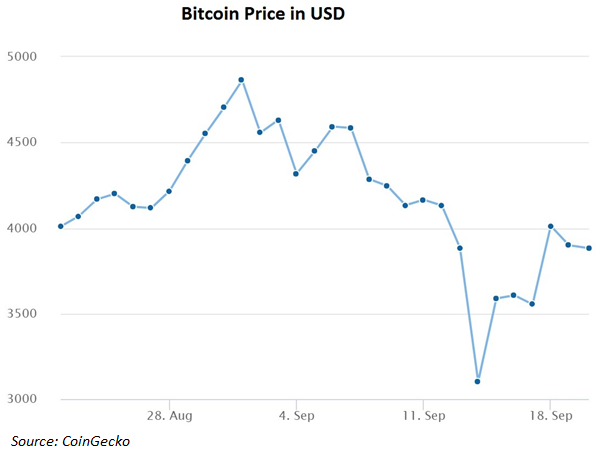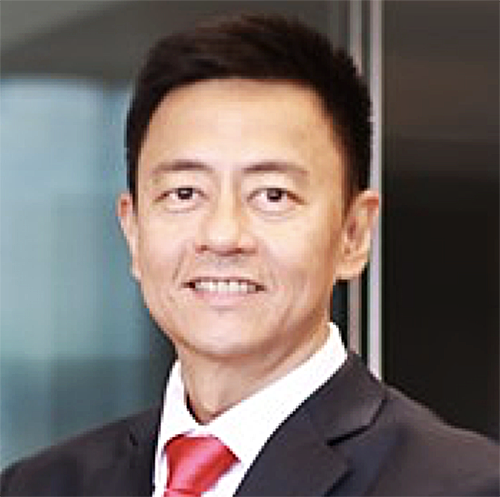China’s Wild West of loose regulation towards technology innovations has given rise to tech-fin leaders such as Ant Financial and TenPay. Yet, the recent crackdown on cryptocurrency by PBoC suggests that the freedom of fintech development is not as boundary-less as some may have thought.
While China does not recognize bitcoin as an official currency, the past few years have seen a burgeoning bitcoin market in China. Some retail investors prefer bitcoins over ordinary investment products because bitcoin transactions do not go through the banking system and can thus circumvent regulatory oversight.
Chinese regulators issued a notice in early September defining initial coin offerings (ICOs) as an illegal form of fundraising. Since then, Chinese ICO platforms started to clean up their businesses. The price of bitcoins subsequently began dropping dramatically from the peak of US$4863 on September 2, to US$3101 on September 14. On September 15, the two largest Chinese bitcoin trading platforms, OKcoin and Huobi.com, both made announcements on their websites announcing the suspension of bitcoin trading activities.

In face of the shutdown of onshore bitcoin trading platforms, Chinese bitcoins investors are looking to tap offshore markets to trade bitcoins. Currently, the bitcoin price can be quoted and denominated in various currencies including USD and CNY on some overseas bitcoin platforms. Some bitcoin platforms even facilitate bitcoin P2P trading.
Currently, data provided by cryptocompare.com show that Japan is leading bitcoin trading by volume with a market share of 48% on September 20, followed by US with 33%, and China with 6%. It is expected that bitcoin trading by Chinese investors will continue to diminish, as Chinese regulators require offshore platforms to shut down bitcoin trading activities in China.
There are those in China who wish to see currency decentralization, i.e., a multitude of currencies operating in tandem, such as bitcoin, as opposed a single centralized currency. According to Dr. Weiming Wu, senior partner of AllBright Law Office, “No country should ignore the recent advocacy for currency decentralization.”
“The best way to destroy bitcoins is actually by controlling issuance of the currency by each sovereign country and enhancing the credibility of paper notes. In addition, the usage of blockchain can also help to build the currency system of each country,” advises Wu.
Unlike Singapore and Hong Kong, where a regulatory sandbox mechanism is in place to address potential issues in fintech development, China has adopted a more relaxed framework that allows fintech innovations before official regulations are issued.
Fintech innovations which avoid illegality are permitted by Chinese regulators. However, grey areas, where technology could be exploited to enable money laundering activities and other forms of misconduct will be restricted and subjected to stringent oversight.
On September 13, The State Council issued guidance on anti-money laundering, anti-terrorism finance and anti-tax evasion. The guidance requires that by 2020 official regulatory frameworks governing these three areas should be in place.
One way to detect suspicious transactions is through AI, which China has been encouraging. The State Council issued a circular on AI development in July, which demonstrates China's determination to develop its AI capability. The circular requires that by 2030, China's AI technology capability has to be one of the top in the world and that core AI products should exceed one trillion yuan in total value. Since 2016, Chinese technology companies, such as Baidu and Alibaba, have begun implementing AI labs.









